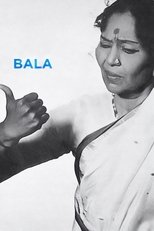
|
|
Venkataraman Raghavan (1908–1979) was a Sanskrit scholar and musicologist. He was the recipient of numerous awards, including the Padma Bhushan and the Sahitya Akademi Award for Sanskrit, and authored over 120 books and 1200 articles.After a brief tenure as the superintendent of the Thanjavur Maharaja Serfoji's Saraswathi Mahal Library, Raghavan joined Madras University in 1934 as a Ph.D. assistant and in 1935 as a lecturer. Rising to the rank of professor and head of the Department of Sanskrit, he held the latter position until his retirement in 1968. In 1931, he paid frequent visits to Tanjore villages with K.V. Ramachandran to highlight the traditional Natakas of the Bhagavata's at Merattur, Sulamangalam. He presented a paper in the Madras Music Academy's annual conference session on "Some Names in Early Sangita Literature" in 1932. He wrote film scripts for Puranas, epics, and Sanskrit classics at a friend's request without making money out of it. He also played an active role in producing dialogue, general advice, and scenario for three films, Sita Kalyanam (1934), Chandrasena (1935) and Jalaja (1938).[3] In the same year, he wrote reviews for the renowned magazines Sound & Shadow and Triveni on Carnatic music, Bharatanatya, and Harikatha performances.[2] He authored several articles and books on music and aesthetics in English, Tamil, and Sanskrit. He was a founding member of the Sahitya Akademi and the Sangeet Natak Akademi, and the founding editor of Samskrita Pratibha, a journal of the Sahitya Akademi (1958–1979). V. Raghavan advised and supervised 22 Ph.D., M.Litt., and non-degree students in their research and publications. He remained a life-long mentor for his students from all over the world. |
